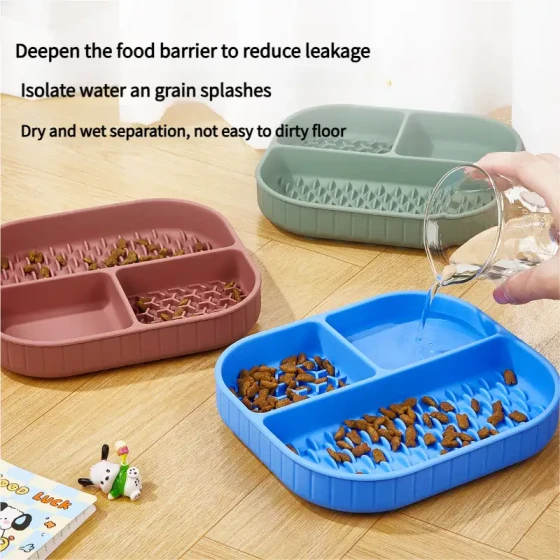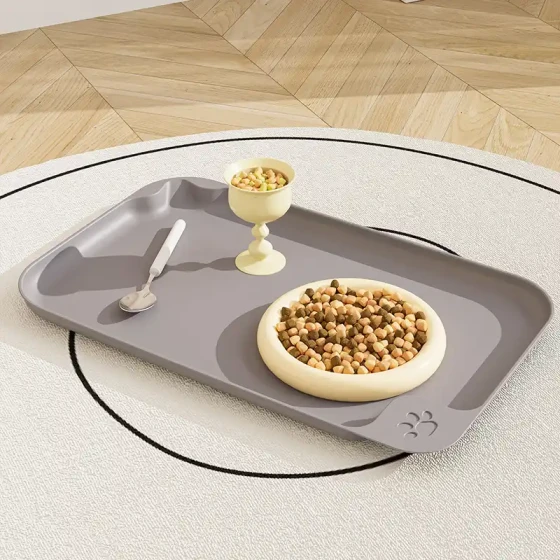The Necessity for Dogs to Get Fecal Examination at the Hospital
Diarrhea and dryness problems in dogs are one of the most common clinical diseases. Generally, pet owners call the hospital saying, "My dog has diarrhea, what medicine should I give? Can I feed some anti-inflammatory drugs at home?" When I first studied to become a veterinarian, I would quickly answer yes, because within my knowledge, I thought antibiotics alone could completely cure diarrhea. But at that time, I was an unqualified doctor. As a doctor, the deeper I studied, the more reluctant I became to answer these two questions from owners. Professionally, I must conduct a thorough consultation. After at least ten minutes of communication, I can gradually exclude some special problems and then tell them whether they should bring the dog to the hospital for examination.
There are many causes of diarrhea in dogs, possibly due to pancreatitis, abnormal enzyme metabolism in the body, infectious diseases, parasites, bacteria, food allergies, fungi, spleen and stomach imbalance, excessive environmental humidity, nutritional deficiencies, moldy food, ingestion of toxic substances, intolerance to the ingested food, poor digestion and absorption, small intestinal diarrhea, colitis diarrhea, and so on.

Abnormally Thin Dog

Thin, Dry, and Lethargic Dog
With so many reasons, it is very irresponsible to give answers based on hearing only one or two sentences. Many owners’ descriptions do differ from the actual situation. Some owners insist, "I personally guarantee my dog only eats dog food, nothing else," yet the dog’s stool contains date pits, peanuts, or even a family member’s underwear. Therefore, as a doctor, we will repeatedly ask owners if the dog has eaten any unusual food or other related questions regardless of owners’ discomfort in order to find the correct answer. Below are the questions I hope owners can help answer for the doctor when dogs have diarrhea.
1. What is the dog’s age? Weight? Immunization status?
2. When did the diarrhea start? Has there been a history of chronic or acute diarrhea before?
3. What is the usual diet? Include all snacks?
4. What food was eaten two days before the diarrhea?
5. After diarrhea started, how many times per day? For each bowel movement since the first, what are the shape, color, and amount?
6. After diarrhea, any vomiting? How many times? What are the vomit’s contents, shape, color, and amount?
7. Mental state after diarrhea? Is there appetite? Thirst?
8. Have you given any medicine at home? What medicine and how much?
9. Current body temperature? Heartbeat per minute? Any rapid breathing?
10. What is the mental state?
11. Any abnormal odor or residues in the mouth?
When you help the doctor answer these questions, we can roughly identify the cause of diarrhea. Next, the owner needs to cooperate with the doctor to run some tests. Many owners begin to resist at this point, wondering why tests are needed before diagnosis. Owners, please don’t rush. From initial visit to diagnosis, doctors need auxiliary diagnostic tests. They cannot guess the illness and treat blindly; this may either cure directly or delay treatment. The chance of cure decreases significantly if treatment starts without diagnosis, and it may also cause unnecessary expenses. Therefore, all owners must follow the doctor’s advice and promptly test fecal excretions.

Collecting Fecal Sample
Fecal examination includes gross general observation, microscopic examination, and chemical tests. Under the microscope, we often see:

Common Substances in Feces
① Cells (white blood cells, red blood cells, eosinophils, macrophages, cancer cells, etc.).
② Intestinal yeasts, Candida albicans.
③ Food residue. Normally, small amounts of starch granules, muscle fibers, and fat droplets are seen. If increased, it suggests malabsorption, often seen in chronic pancreatitis or pancreatic insufficiency (such as pancreatic head cancer).
④ Parasites. Common ones include roundworm eggs, hookworm eggs, pinworm eggs, Chinese liver fluke eggs, Giardia cysts, and amoeba trophozoites.
All of these are useful diagnostic clues because different diseases have their characteristic excretions and secretions. Don’t ignore key points and importance just because the test looks unremarkable.



-560x560.webp)